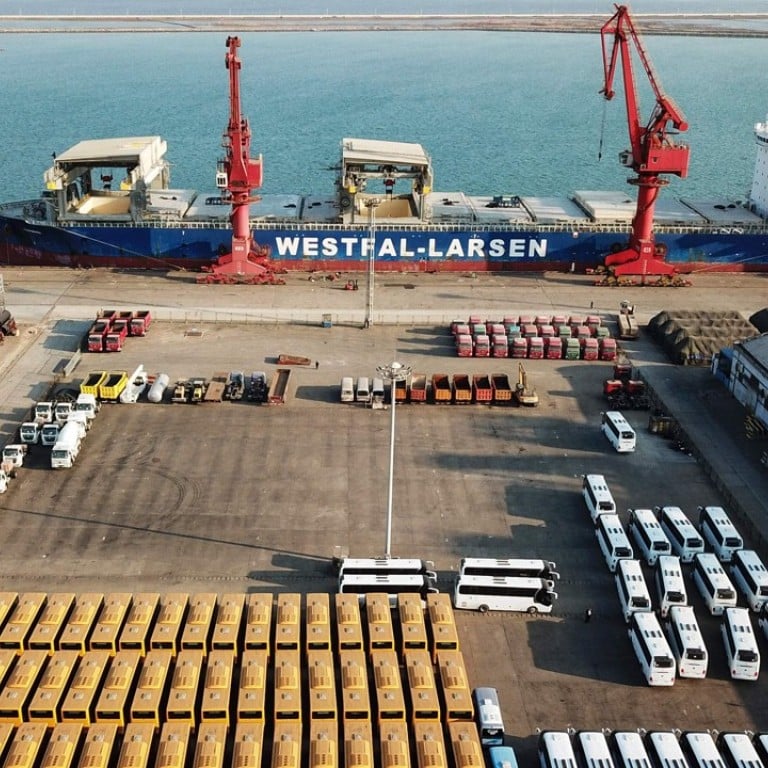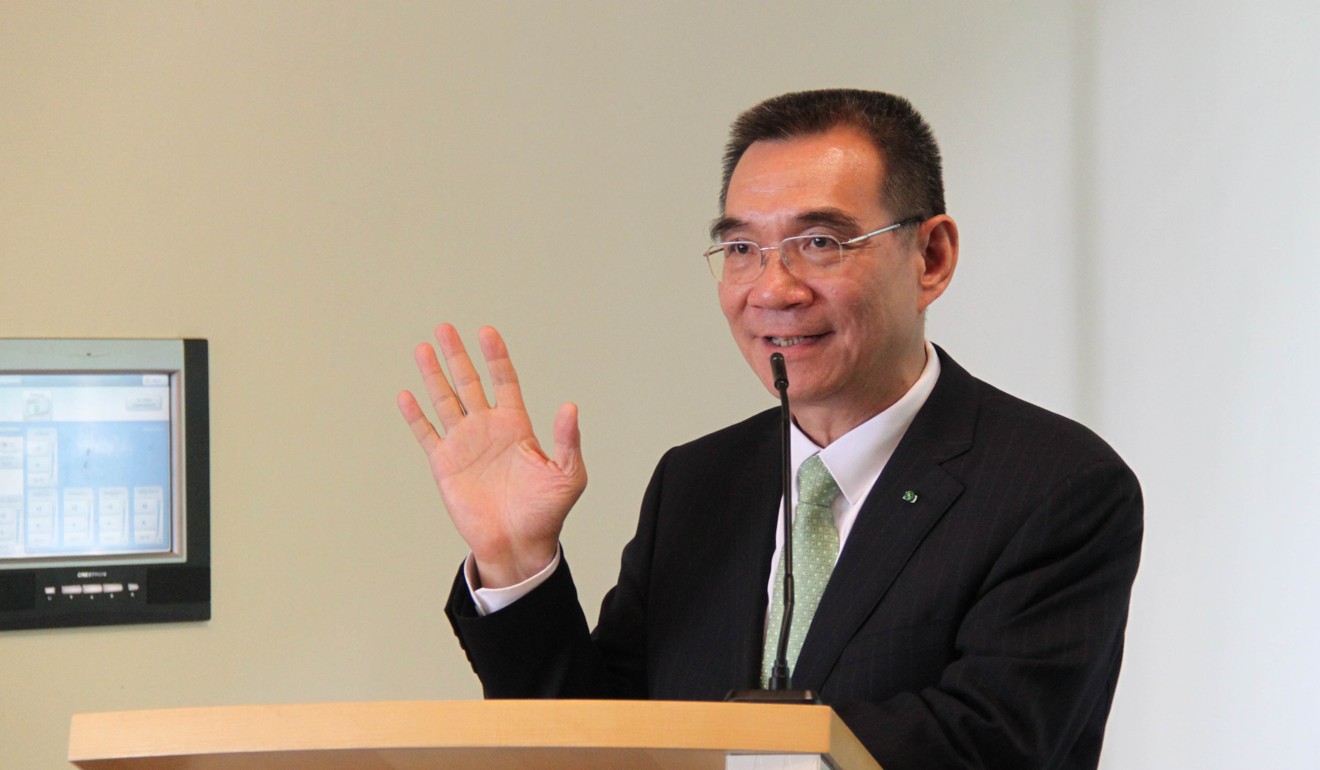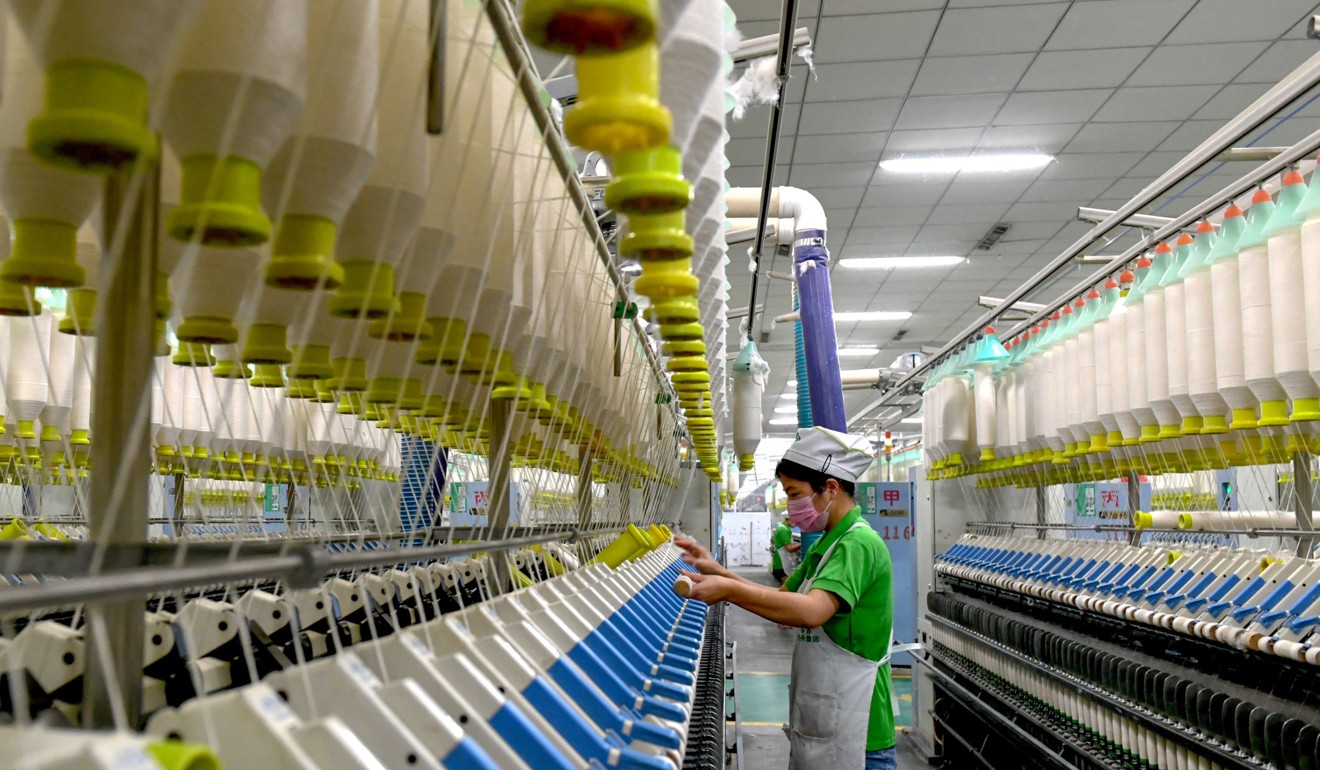
End the trade war with China or miss out on future growth, ex-World Bank economist warns US
- World’s second-biggest economy will continue to expand even if conflict with US goes on for decades, government adviser Justin Lin Yifu says
- And America’s loss will be EU’s, Japan’s, South Korea’s gain
If the United States maintains its trade war with China it will miss out on the benefits of the Asian nation’s future growth, a former chief economist with the World Bank and senior economic adviser to Beijing said in Hong Kong on Thursday.
Unlike other emerging economies like Russia, India, Brazil and Turkey, China has good investment opportunities to realise its growth potential, said Justin Lin Yifu, who is also a professor at Peking University.
And if the US misses out on those opportunities, they will be snapped up by other players, like Japan, South Korea and the European Union, he said.

“As long as China keeps growing, it will have to import more and the market will be available to other economies if the US does not want to compete within it,” Lin said in his keynote speech at an event organised by the think tank Our Hong Kong Foundation titled “China’s New Economic Era in the Face of Escalating Trade Conflicts”.
‘The biggest story in Chinese politics right now’ – silence over Communist Party’s autumn meeting
He predicted that China’s economy would continue to grow even if the trade war lasted for decades. For instance, if the trade conflict continued until 2050, he said, China’s economic growth rate would slip to about 6 per cent from now until 2020, before slowing to 4.5 per cent between 2021 and 2035, and to 3.5 per cent from 2036 to 2050.
The reasons for China’s strong growth potential is its high savings rate, strong fiscal position and US$3 trillion worth of foreign exchange reserves, Lin said.
A former Taiwanese military officer who defected to the mainland in 1979, Lin is a firm supporter of the Chinese model for economic development and has taken part in many conferences attended by President Xi Jinping and Premier Li Keqiang. He was chief economist and senior vice-president of the World Bank from 2008 to 2012.

In response to the trade war with the United States, China should continue to deepen its reforms and open up its economy in areas in which it lags, Lin said, adding that China should also seek to stimulate economic growth through investment and consumption.
China’s excess production capacity is in industries that produce goods with low to medium added value, but any future investment should be in high value-added sectors and environmental protection, he said.
Since the trade tensions with the US started to escalate in the summer, Beijing has instituted extensive but modest policy support measures to bolster the economy. These include mild monetary easing and fiscal measures consisting of targeted infrastructure investment and small individual tax cuts.
The Communist Party’s top policymaking body, the Politburo, agreed on Wednesday that there was “growing downward pressure” on the economy due to “profound changes” in the external environment, Xinhua reported.
Chinese economy slowing faster than expected, worst yet to come, analysts say
The official manufacturing purchasing managers’ index fell more than expected in October, led by weak export orders, while the Caixin PMI rose slightly but remained at a very low level. Goldman Sachs said the data pointed to an overall softening of growth momentum in the manufacturing sector.
While the worsening data and the Politburo’s comments suggest further policy measures to come, they have also led to questions about China’s ability to proceed with the market liberalisation and reform of state-owned enterprises that many analysts say are crucial to solving the underlying problems behind the weakness in the economy and the stock market.
ING Bank estimated that China would come up with an economic stimulus package of between 9 trillion and 10 trillion yuan (US$1.29 trillion to US$1.43 trillion), or about the same as it did in 2009 to combat the effects of the global financial crisis.
Xi Jinping tells China’s private business owners: you can survive and thrive here
However, Zhang Weiying, an economist and professor at Peking University, recently argued that using the “China model” – which comprises a powerful one-party state, a huge state sector and a top-down industrial policy – to explain the country’s economic success over the past four decades was wrong and dangerous, saying the misconception had inevitably led to antagonism between China and the West.
Continuing to promote such a model would lead to a strengthening of state-owned enterprises, increased state power and an overreliance on industrial policy, Zhang said.
And that in turn would reverse any progress made as a result of the country’s reforms and mean the eventual stagnation of economic growth, he said.

